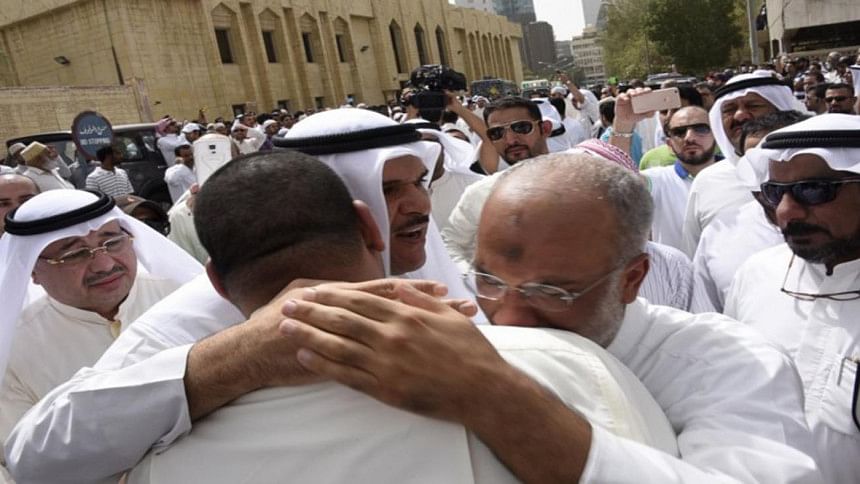How one country came together after a terror attack

Following a suicide attack on a mosque, many Kuwaitis have reacted by publicly rejecting sectarianism and calling for unity on their social media accounts.
The bomber, who authorities say was from Saudi Arabia, targeted a Shia mosque, in a country where a majority is followers of Sunni Islam. The attack left at least 27 dead and more than 200 injured.
It was designed to rip the country apart. But online, as well as on the streets of Kuwait City, the attack had the opposite effect.
Tens of thousands took to social media to express national unity. An Arabic hashtag which translates as "one rank" has been used more than 10,000 times since the attack - the idea behind the tag was that Kuwaitis should unify, like an army, to defeat terrorism.
A common sentiment was expressed by @hamedalbader: "Terrorism doesn't have a religion or a nationality. So let's not attribute criminal activities such as this to a certain segment of society and take our anger out on them."
Similar hashtags such as "Kuwait is one" and "Kuwait is strong" also trended. Several repeated the words of the country's Emir, Sabah IV Ahmad Al-Jaber Al-Sabah, who visited the mosque shortly after the attack and reportedly said of those who died: "they are my children."
Also being shared was video of a prominent Shia journalist and presenter,Abdullah Boftain, who spoke outside the mosque soon after the attack, urging people not to point the finger of blame at Sunnis.
Boftain said that the blame should only be placed with Islamic State, who claimed responsibility for the attack.
"The country needs us to be united", he said, adding: "what is being attacked today is Islam… not the Shias or the Sunnis."

 For all latest news, follow The Daily Star's Google News channel.
For all latest news, follow The Daily Star's Google News channel. 



Comments